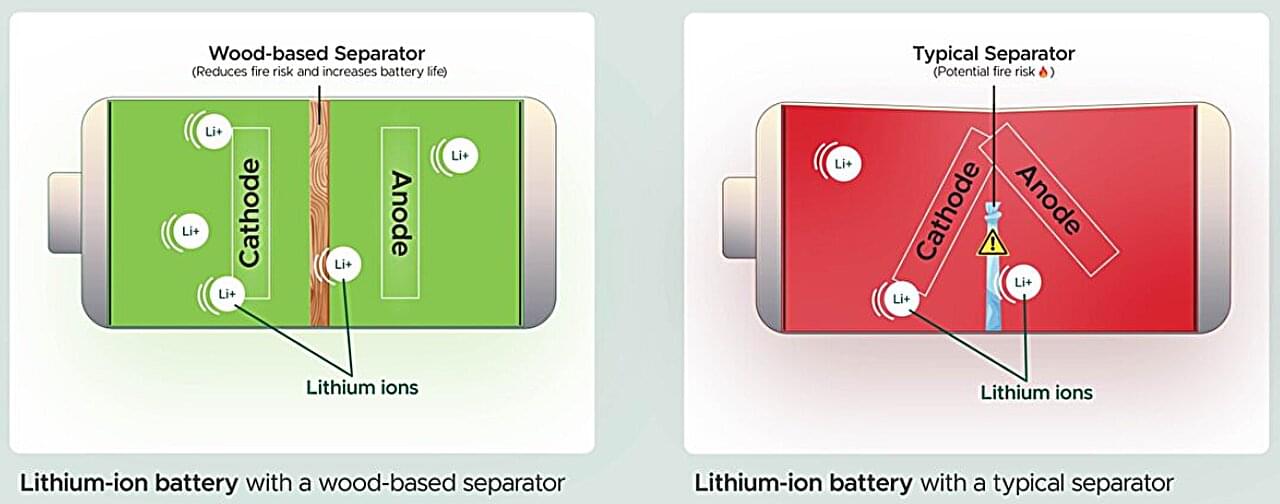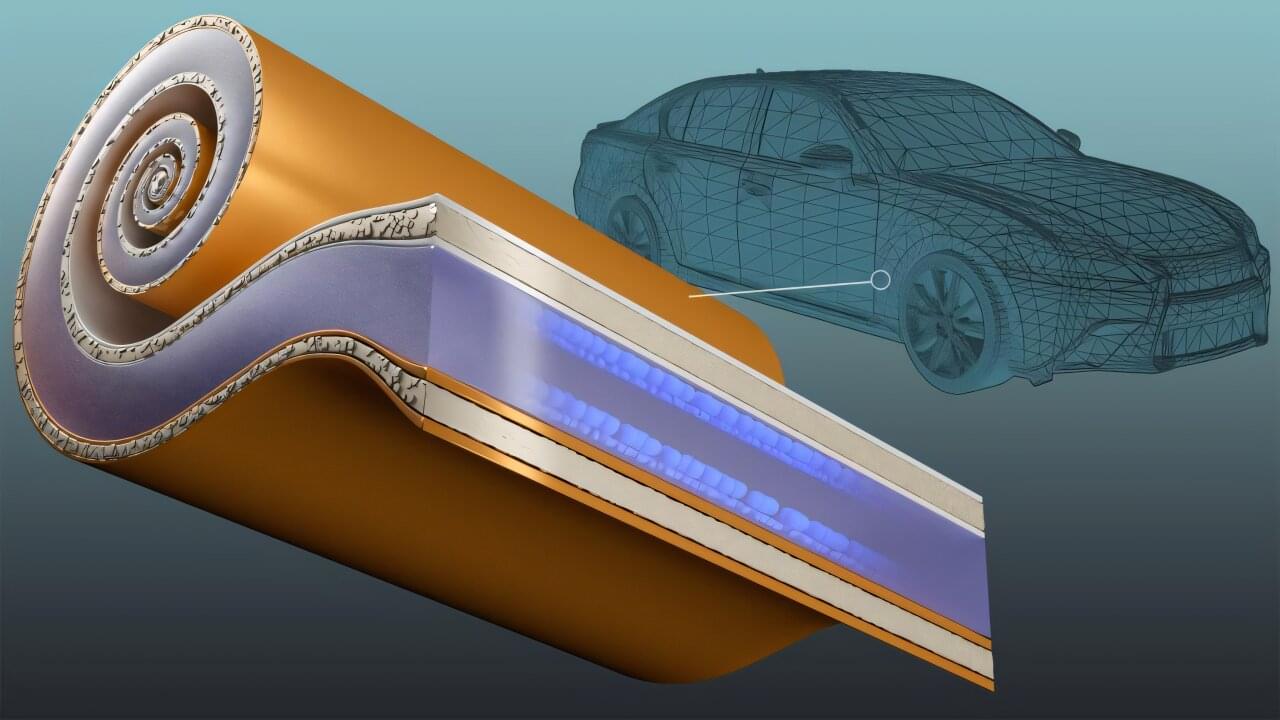For consumers worried about the risks associated with using lithium-ion batteries—which are used in everything from phones to laptops to electric vehicles—Michigan State University has discovered that a natural material found in wood can improve battery safety while also improving the battery’s life.
Chengcheng Fang, assistant professor in the College of Engineering, and Mojgan Nejad, an associate professor in the College of Agriculture and Natural Resources, collaborated to engineer lignin, a natural ingredient of wood that provides support and rigidity, into a thin film separator that can be used inside lithium-ion batteries to prevent short circuits that can cause a fire.
“We wanted to build a better battery,” said Fang. “But we also wanted it to be safe, efficient and sustainable.”





